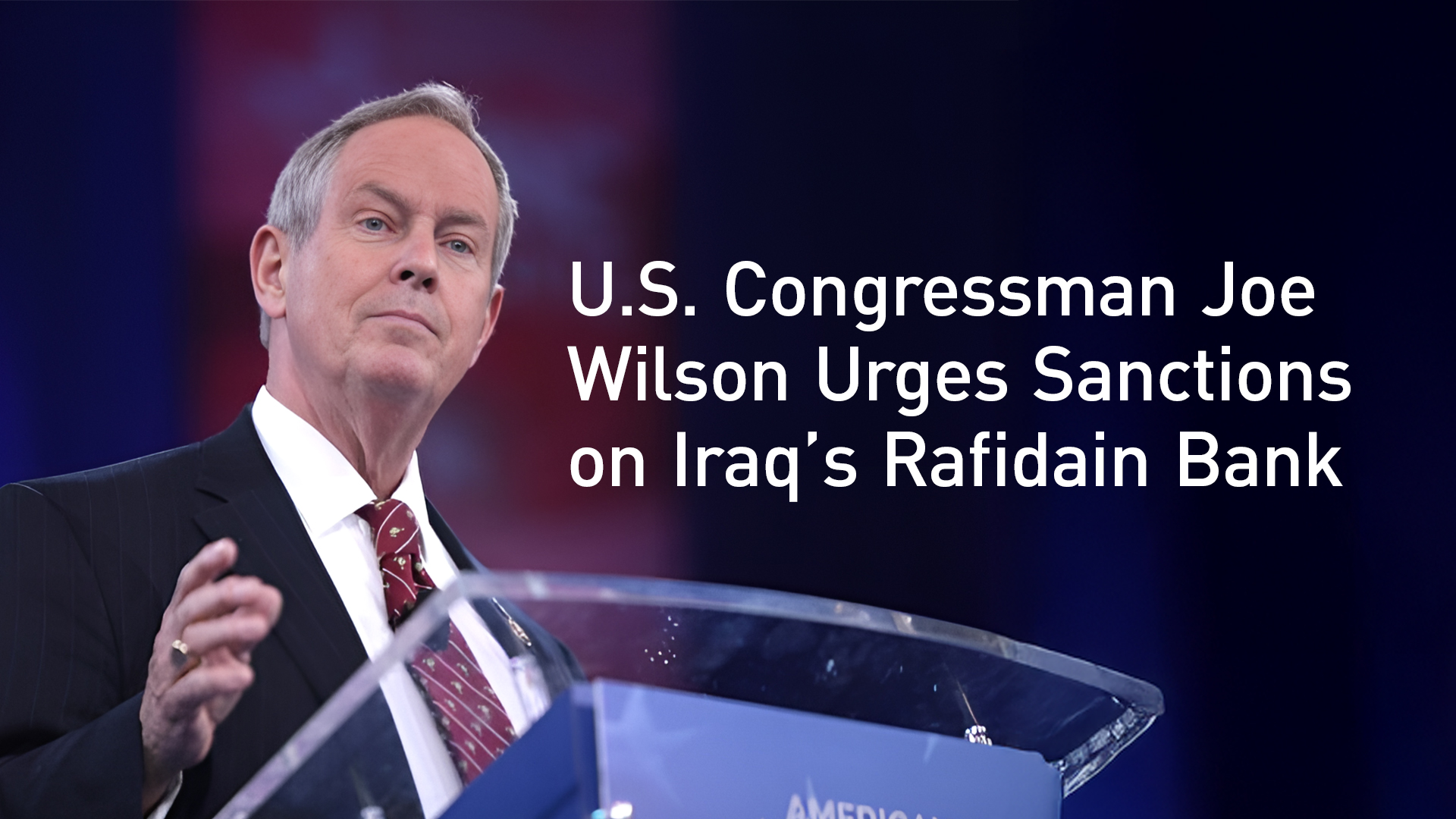US Lawmaker Threatens to Cut Iraq Funding Over Bank's Alleged Houthi Ties
U.S. Congressman Joe Wilson threatens to cut Iraq's funding, accusing its state-owned Rafidain Bank of financing the Houthis. A Fox News report detailed a U.S. warning to Iraqi officials on the matter, which Iraq’s embassy has categorically denied.

ERBIL (Kurdistan 24) – U.S. Republican Congressman Joe Wilson has accused Iraq's state-owned Rafidain Bank of processing payments for the Houthi movement, a U.S.-designated terrorist organization, and has threatened to work towards cutting U.S. funding to Iraq as a consequence. In a forceful statement posted to his official X account on Friday, the South Carolina representative leveled a severe charge against the Iraqi state, suggesting a designation that carries significant diplomatic and economic ramifications.
"Iraq’s state-owned Rafidain bank is processing payments for the Houthis, a terrorist organization!" Congressman Wilson stated. "We have a name describing these types of countries - state sponsors of terrorism. I will work to cut funding to Iraq during the upcoming appropriations legislation. I urge the U.S. Department of the Treasury to sanction Al Rafidain Bank.”
Iraq’s state owned Rafidain bank is processing payments for the Houthis, a terrorist organization!
— Joe Wilson (@RepJoeWilson) August 14, 2025
We have a name describing these types of counties - state sponsors of terrorism.
I will work to cut funding to Iraq during the upcoming appropriations legislation.
I urge…
The congressman's public call to action follows an exclusive report by Fox News detailing accusations that Rafidain Bank's branch in Sana'a, the Yemeni capital controlled by the Houthis, has been facilitating payments for the group.
According to the report, which cited an unnamed Iraqi official, U.S. Treasury officials directly confronted senior Iraqi diplomats about the issue during a high-level meeting in Washington on April 29. The meeting reportedly included Dr. Michael Faulkender, a deputy secretary of the U.S. Treasury, Iraq’s Foreign Minister Fuad Hussein, and Iraq’s Ambassador to the U.S., Nazar Al Khirullah.
Fox Business, which obtained what it described as minutes from the meeting, reported that Treasury officials warned Hussein that the state-controlled bank needed to cease conducting business with the Houthis.
The U.S. also requested that the Rafidain branch be relocated to Aden, the seat of Yemen’s internationally recognized government. The financing of the Houthi movement has significant implications for global commerce, as the group has repeatedly launched missile attacks on commercial vessels in the Red Sea.
The official slogan of the Houthi movement includes the phrases "Death to America" and "Death to Israel."
According to the reported minutes, Foreign Minister Hussein responded by stating, "The Iraqi government deals with the internationally recognized Yemeni government, which maintains an embassy in Iraq."
He reportedly emphasized that there was "no possibility of the Houthis accessing the Iraqi financial system, and pledged to personally verify this matter." In a more formal and categorical denial sent to Fox Business, a spokesperson for Iraq’s embassy in Washington, Dr. Sadeq Ali Hasan, called the allegations "categorically false."
The embassy statement insisted that the Sana'a branch has been "fully non-operational since 2017," has no access to the SWIFT international banking system, lacks liquidity, and "has not processed any domestic or international payments – particularly not to the Houthi group – since its closure."
However, the Iraqi official who spoke to Fox News countered the embassy's position, describing Rafidain as "Iraq’s most opaque bank" and noting it has never been externally audited.
"The U.S. Treasury should act," the source stated, adding that the bank pays for projects of the Popular Mobilization Forces (PMF) and issues unsecured loans to its fighters. The Iraqi embassy also addressed this, stating that Rafidain Bank "no longer holds any PMF-related accounts" and that they had been transferred to Al-Nahrain Islamic Bank.
The official U.S. government response has been more measured. A U.S. Treasury spokesperson told Fox Business that while the department does not comment on specific allegations, it takes any potential sanctions violations "extremely seriously."
Similarly, a State Department spokesperson said they do not comment on private diplomatic discussions but affirmed that "no country should be processing payments to the Houthis." Michael Knights, a senior fellow at the Washington Institute, told Fox Business that U.S. congressional representatives have been aware of Rafidain Bank since February 2025 over concerns it facilitates money transfers to Iran and its proxies, putting the bank "in the danger zone."
The bank has a history of being under international scrutiny; it was previously blacklisted by the U.S. and the United Nations to punish Saddam Hussein's regime before sanctions were lifted in the years following the 2003 invasion.